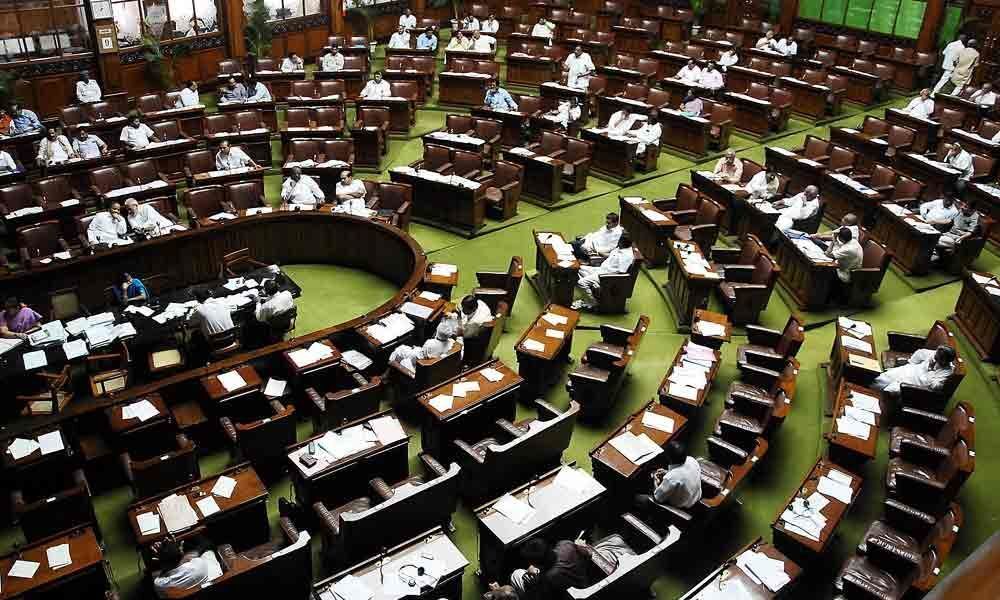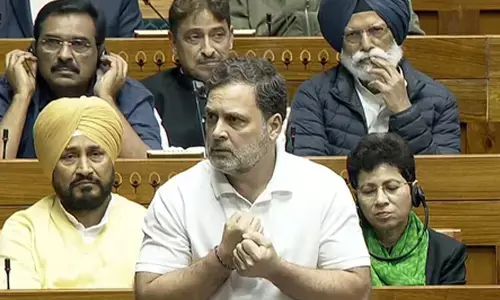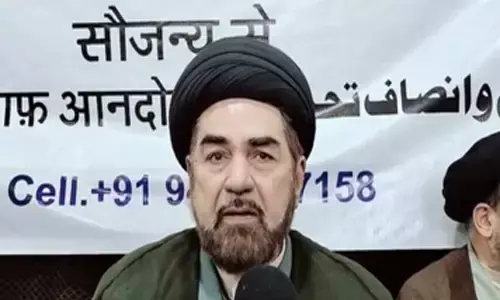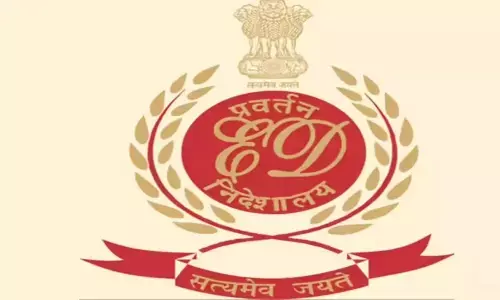Why a course on ethics not a bad idea?
 Why a course on ethics not a bad idea?
Why a course on ethics not a bad idea?Conducting regular, periodical, free, fair and impartial elections truly constitutes an amazing feat in a democracy. That there is an occasional complaint here and there cannot take away the robustness of the process as a whole, but in fact, is a welcome reinforcement of the fact that there is a vibrant democracy working.
Complaints can be made, heard, debated about, and dealt with. The winds of change have blown across the length and breadth of the country over the last few months, from Bhuj to Aizawl, and from Ladakh to Rameswaram.
Once again, the people of India have voiced their preference, loudly and clearly, an act that augurs well for India to establish itself as a leading light in the Comity of Nations, as 2022, the year of India celebrating the Platinum Jubilee of its birth as a democracy, approaches.
Many young men and women will now enter the hallowed portals of the Houses of the legislatures of the States of the country and, of course, Parliament. A particularly heartening feature is the fact that nearly 12 percent of the Members of Parliament are below 40 years of age. As many as 300 of the Members are first timers.
And the most encouraging feature is that 14 percent of the Members are women, the highest ever so far. A good time, perhaps, for them all, to recollect the spirit behind the concept of the State, as set out in the Constitution of India, the doctrine of separation of powers, the system of checks and balances and the roles of legislatures and legislators, to recall the sacrifices made by the freedom-fighters who made India possible, and to rededicate themselves to the lofty ideals of probity in public life and dedication to the cause of the welfare of the people.
They need to remember that destiny has given them a great opportunity to serve the people of their constituencies, their States and the nation. This columnist has had occasion in the past to note, with regret and disappointment, the trust deficit created in the public mind by the failure, on the part of political leaders, civil servants, captains of industry and professionals such as lawyers, doctors and accountants, to adhere to the standards of moral character and ethical conduct expected of them.
A great and special responsibility is entrusted to those who occupy high positions in the three wings of the State, namely, the executive, the legislature and the judiciary. This is much more so in the case of legislators as they are elected by the people and are expected to represent their interests.
While there are large number of functions and responsibilities associated with the office of the Member of Parliament or the State legislature, three of those stand out clearly. These are to legislate, to deliberate and to ensure accountability of the executive, the judiciary, and of their own functioning, to the people of the country.
In the process of discharging these functions, it is necessary that certain important ground rules are recognised and respected. To remain in constant and continuous touch with the people of their constituencies is clearly a primary duty. To participate regularly and actively in the proceedings of the House which one belongs to, is another, as their masters, that is their electors, have ordained them to perform it.
Striving for the effective and orderly conduct of the business of the House is also an important one. And, especially against the background of the distressing incidents one has witnessed in recent times, maintaining a modicum of dignity and decorum in one's own conduct is an imperative.
Vice President Venkaiah Naidu, while delivering the valedictory address in the Rajya Sabha at the conclusion of the last Budget session of Parliament, was constrained to note the "dysfunctional pattern" into which the House had fallen.
While observing that 44 out of 48 hours of total time was lost on account of disruptions, boycotts and walkouts, he noted with disappointment that several Bills had to be passed without discussion for want of time. That was indeed an observation of great significance coming, as it did, from a person who has spent most of his life in the State legislature and in Parliament.
And those who know him will vouch for the fact that, while observing every tenet of disciplined behaviour and conscientious discharge of responsibility as a legislator in the both Houses in which he served as a Member, he was known for his exceptionally active and effective participation in the proceedings thereof.
He went on to remind the Members to remember that the people had sent them to the House to represent their interests, canvass their concerns and influence and shape government policy, and urged them to prove worthy of the trust and faith reposed in them.
If the exhortations of the Presiding Officer of House of Elders are not to go in vain, Members of Parliament and Legislatures will need to flag a number of fundamentals which should inform their conduct.
Several things need mention here. Firstly, the Chair is supreme and its verdict represents the last word. Secondly, while most Members may belong to one political party or the other, the right of a Member to express an individual opinion on a matter of public importance is unfettered, at least in the absence of a party whip to the contrary.
Thirdly, the division of the political system of the country into various parties does not take away from the fact that the House is a monolithic institution and has an identity of its own, distinct and unique. In other words, on matters that pertain to basic human requirements, important sectors of the economy such as agriculture, rural development, health, education, social welfare, irrigation, energy, industry, infrastructure or matters of primary concern to the nation such as defence, external affairs or the State of the economy, there should, by and large, be a common denominator of consensus that should inform the position taken by Members during the proceedings of the House.
There should be a national character that governs decisions in such matters. The varying persuasions that represent the lines of division between political parties should, on no account, be allowed to disturb the firmness of that fundamental foundation.
In particular, those in the Opposition need to resist the temptation to oppose all issues merely for the sake of opposition and, instead, be prepared for a spirit of constructive cooperation on matters of national importance upon which there is no need for controversy or conflict of opinion. In this context, this columnist recollects an amusing incident. Justice Hidayatullah was once presiding over the Question Hour in the Upper House.
The inimitable Piloo Modi, Mrs. Margaret Alva and Prime Minister Indira Gandhi were the principal actors in the incident. After some heated exchanges, the Chair recited a Persian couplet apt to the situation. Piloo rose, objecting that he (of all people!) failed to understand the couplet. Hidayatullah obliged, translating the meaning as "steel cuts steel". Having earlier pleaded ignorance of Farsi, Modi this time got up and said, "why not use the other couplet which says diamond cuts diamond"? Hidayatullah thereupon, wryly observed, "I see no diamonds here on either side!"
Many important laws have been passed in the past and epoch– making legislation undertaken by Parliament. Among the significant items that constitute the residual agenda are bill that promises quota to women and a law that codifies the privileges of the Members of Parliament. While addressing such matters of great national importance, the new Members will also do well to curb the tendency to allow their perks and pay to rise beyond acceptable levels. Privileges to be codified. Unchecked hikes in perks and pay to be curbed.
Finally, one expects our representatives to remain ever conscious of the fact that their lives are subjects of close public scrutiny and conduct themselves in a fashion that meets with public approval. In recognition of the need to lay down rules for maintaining the highest standards of ethical behaviour in legislatures, many countries including the UK and the USA have prescribed course of ethics for the Members of their legislative institutions and ministers.
In India, Committees dealing with Ethics are already in place in both Houses of Parliament, as are the rules and regulations made by them. Remaining strictly within the confines of the four walls of the regime prescribed by them is the surest way of ensuring that their conduct and character win the acclaim of the country.
(The writer is former Chief Secretary, Government of Andhra Pradesh)









